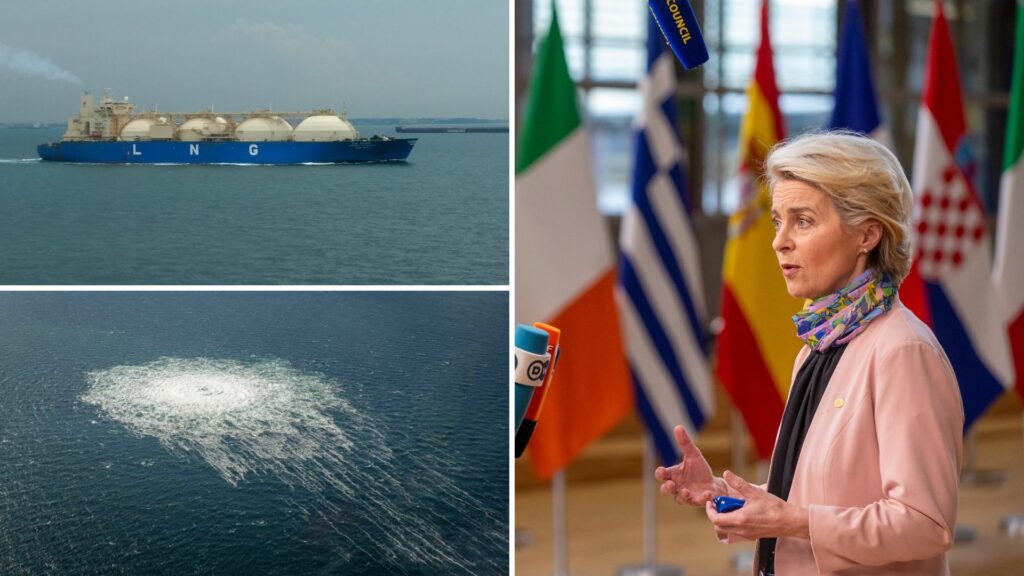Pending the creation of a new benchmark index for the price of liquefied natural gas (LNG), the European Commission has proposed a temporary dynamic price ceiling to curtail extreme price fluctuations on the Dutch TTF market, Europe's largest gas market.
On Tuesday, the Commission presented its long-awaited legislative proposals to tackle gas prices, which will be discussed at the European summit on Thursday and Friday.
"The current pricing benchmark is no longer adapted to a market that is shifting from pipeline gas to LNG," said Commission President Ursula von der Leyen during a press conference. "We will develop a new benchmark and put in place a mechanism to limit excessive gas prices in the meantime."
Many EU Member States have been calling for concrete measures to tackle gas prices on the wholesale market for months, with Belgium repeatedly urging a general price cap. On Monday, Prime Minister Alexander De Croo already said that the European summit at the end of this week is "the moment of truth."
In the run-up to the summit, the Commission proposed an emergency regulation on Tuesday, aiming to tackle high gas prices and safeguard European supply. This demand (rather than a general price cap) has been put at the top of the agenda by countries such as Germany, the Netherlands and Denmark.
Still, the Commission is now proposing a market-wide intervention: as Von der Leyen said earlier, the TTF market no longer works properly, as it is acutely sensitive to Russian manipulation of gas supplies to Europe. This makes the prices for pipeline gas on the TFF market exceptionally volatile.
To remedy this, the Commission wants to create an additional reference index for LNG, which should be ready by April next year – when EU countries will begin to replenish their gas supplies for the next winter. The new index must ensure "a stable and predictable LNG price." But before a new index is introduced, a market correction mechanism is needed to bring the extreme prices on the TTF market under control.
Related News
- European gas prices at their lowest level since June
- 'Europe is a gentle giant': Belgian PM De Croo delivers State of the Union
- European Commission opens door to temporary EU gas price cap
That mechanism would be activated in case of emergency and would set a temporary dynamic price ceiling for the short-term trading of natural gas. What exactly should be regarded as "excessive prices" is not yet clear; the price on the TTF market is tied to the international gas market, the Commission said. Other platforms could be linked to the TTF ceiling via a dynamic corridor.
The Commission also wants the Member States to purchase more gas collectively and be obliged to show solidarity with each other when a supply problem arises. Additionally, it also hopes for a "circuit breaker" which would counteract large price fluctuations in day trading on derivatives markets.
A so-called energy platform for joint EU purchases of natural gas requires broad consensus among the EU member states but not consensus, Commission spokespersons clarified last week. Because of the interconnection between energy markets in the EU, joint purchases of natural gas would be more complicated than the joint purchases of COVID-19 vaccines during the pandemic, they told The Brussels Times.

